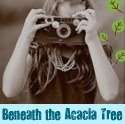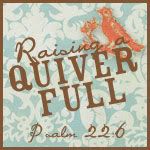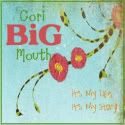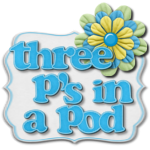Loving Donna
It has been said that love is not something you find; it's something you do. Loving Donna is the easiest thing I've ever done in my life.
We've been married to each other for twenty-one years, and we're still newlyweds, if you consider that marriage is supposed to be forever.A year ago, when the phone rang and I answered it, the voice said, "This is Doctor Freeman. Your wife has breast cancer." He spoke matter-of-factly, not mincing any words, although I could tell from his tone that he was not in a matter-of-fact frame of mind.
He is a warm, caring and kindly physician, and this was not an easy phone call to make. He talked to Donna for a few minutes, and when she hung up the phone, the color drained from her face, and we held each other and cried for about five minutes.
She sighed and said, "That's enough of that."
I looked at her. "Okay," I said. "We have cancer. We'll handle it."
In the twelve months since then, Donna has had chemotherapy, a mastectomy, a bone-marrow transplant and radiation. She lost her hair, she lost a breast, she lost her privacy, and she lost the comfort associated with the assumption that tomorrow always comes. Suddenly, all her tomorrows were put on hold, and doled out, piecemeal, until the supply could be reestablished. But she never lost her dignity or her faith. She never gave up, and she never gave in.
We put a small sign on the wall beside her bed. It said: "Sometimes the Lord calms the storm. Sometimes he lets the storm rage and calms his child." The words of the small sign became our anthem.
The day she returned home after her mastectomy, she looked at herself in the mirror, carefully. Then she shrugged, said, "So that's what I look like," put on her pajamas and got into bed. She looked at herself and saw hope; I saw courage.
She was in the hospital for Easter, Mother's Day and a high school graduation. She missed a lot of other people's lives during an interminable list of medical procedures.
But she gained a lot, too.
She attended the wedding of one of our sons in a motorized wheelchair, wearing a wig and a padded bra, and, next to the bride, she was undoubtedly the most radiant woman there.
And she found out how much her extended family and her neighbors loved her, and how much she meant in the lives of all of us. We received notes and letters and phone calls and mysterious packages of homemade bread and cookies left on our doorstep. Donna said she didn't realize how many people cared about her.
One night, at the lowest point of her physical ordeal, I was in my usual chair in the quiet of her hospital room. She had finished four days of around-the-clock high-dose chemotherapy. Her immune system had been destroyed. Her head was shiny-bald, her eyes glassy, her body thirty pounds lighter and wracked with waves of nausea.
She woke up, and I reached over to touch her hand. I held it, gently, because her skin and veins and every part of her body were as fragile as the petals of a gardenia. If the bone marrow transplant didn't engraft, this was the beginning of the end. If the transplant worked, this was the bottom, and she could start climbing the steep road to recovery.
"Hi," I said. "I love you."
She laughed. "Yeah, sure you do. I'll bet you say that to all your girlfriends."
"Of course I do. Because you're all my girlfriends."
She smiled, the sedatives took over again, and she went back to sleep. Mercifully, she spent most of that week in a drug-induced mental twilight.
Ten days later, her bone marrow had engrafted, and her body was beginning to restore itself. A wonderful volunteer named Nancy came by Donna's room to teach her how to watercolor as part of her recovery therapy. I was in the room, and the lady handed me a brush and paper and paints with the simple command, "Paint something."
I have a great eye for beauty. I know it when I see it. But since elementary school, when I was young and innocent enough to believe that everything I painted was a work of art, I have learned that my hand-eye coordination is limited to the use of a computer keyboard and the TV remote control. I don't draw, and I don't paint.
So I dabbed some colors on the page, and I painted a bouquet of flowers that I pretended was something in the style that Picasso might have done and called "cubist" or Grandma Moses might have done and called "primitive." I was encouraged when Donna and Nancy both recognized them as daffodils, and that they could see seven of them, which is what I had intended.
I had remembered some lyrics from an old ballad that I'd heard more than forty years ago, so I wrote them on the bottom of the picture. I said:
I haven't any mansion;
I haven't any land.
Not one paper dollar to crinkle in my hand.
But I can show you mornings on a thousand hills,
And kiss you, and give you
Seven daffodils.
She put my picture on the wall in her room, and it was like seeing my childhood dreams stuck to the refrigerator door once again. Only this time, it was about life and death and love and hope. She's home now, and life goes on for us. Every day we laugh a little and sometimes we cry a little. And we love a lot.
I love her for all the best reasons that a man loves a woman. In the end, I love her because she makes more of my world and my life than I can make of them by myself.
She loves me for all the simple reasons that a woman loves a man. For quiet nights and sunny days. For shared laughter and common tears. For twenty-one years of dishes and diapers and going to work and coming home and seeing her own future when she looks into my eyes.
And for a picture of seven daffodils.




































3 comments:
Quite an inspirational story.
Also, just a tip: reduce your page legth, otherwise it takes about 3 minutes to load the whole thing on slower connections. (thus it reduces your viewer count)
have a good day and visit my blog if you'd like:
http://laser-bob.blogspot.com
What a beautiful story of love and courage!! This is the kind of love, I strive for!!
http://mbrsociety.org
Beautiful, sensitive and touching story about love, life and courage..loved it...
Post a Comment